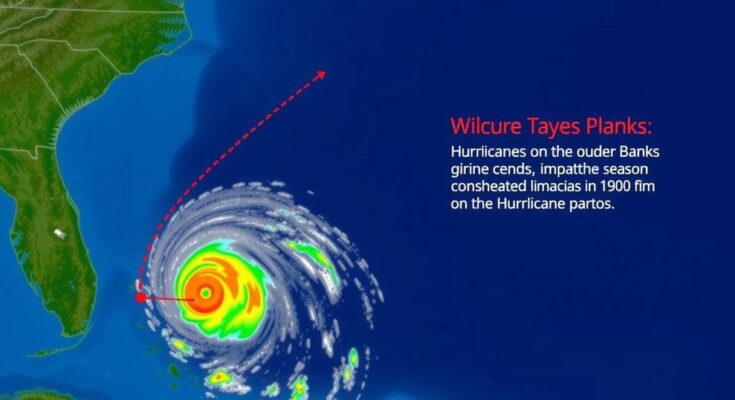The 2024 Atlantic hurricane season concluded with 18 named storms, including 11 hurricanes and five major hurricanes. Hurricane Helene was particularly devastating, causing extensive flooding and over 150 fatalities in North Carolina, resulting in damages exceeding $58 billion. Improved NOAA forecasting and monitoring technologies played a critical role in tracking and predicting storm behavior, while the Outer Banks experienced significant impacts from various storms throughout the season.
The 2024 Atlantic hurricane season concluded on Saturday, leaving a significant impact on North Carolina, particularly the Outer Banks. This year, the Atlantic basin experienced 18 named storms—11 of which were hurricanes, with five becoming major hurricanes. Despite an initial lull, the season witnessed intense activity culminating in Hurricane Helene, which made landfall in Florida and caused catastrophic flooding and widespread destruction across the southeastern United States, especially in North Carolina.
Meteorological assessments from NOAA indicated that levels of storm activity aligned with predictions, showcasing the vital role of hurricane forecasting and monitoring services. Notably, Hurricane Helene was particularly devastating, resulting in more than 150 fatalities, with the majority occurring in North Carolina. Financial losses from the storm have reached $58 billion, establishing it as the costliest hurricane in the state’s history.
The season also recorded multiple significant storms, including Hurricanes Beryl and Milton. These storms affected areas from Texas to Florida, causing extensive damage through storm surges and resulting tornadoes. Furthermore, NOAA’s improved forecasting methodologies, including new technology and modeling capabilities, contributed to higher prediction accuracy throughout the season.
In addition to wind and rainfall, these hurricanes resulted in infrastructural damage along the Outer Banks, prompting NOAA to employ aircraft missions for data collection and real-time forecasting. Their research efforts were underscored by advancements in monitoring oceanic conditions pivotal to hurricane intensity predictions.
Understanding the implications of the 2024 hurricane season is crucial for evaluating the overall preparedness and response protocols in place for such natural disasters. The Outer Banks of North Carolina, particularly vulnerable due to their geographical location, faced various impacts from several tropical systems. This season has been characterized by an unprecedented number of storms and has highlighted the essential role of NOAA’s forecasting capabilities and the advancements in technology that have improved storm tracking and prediction accuracy. The record-breaking rainfall and loss of life, especially from Hurricane Helene, necessitate an examination of the changing dynamics of hurricane activity in the Atlantic.
The conclusion of the 2024 hurricane season serves as a poignant reminder of the growing intensity and frequency of storms affecting coastal regions, particularly the Outer Banks of North Carolina. With Hurricane Helene marking a historic event delineated by unprecedented rainfall and significant casualties, it becomes imperative to adapt and enhance forecasting technologies and response strategies. The vital contributions of NOAA and their ongoing efforts in research and data collection are essential to safeguarding lives and minimizing property damage in future hurricane seasons.
Original Source: islandfreepress.org




